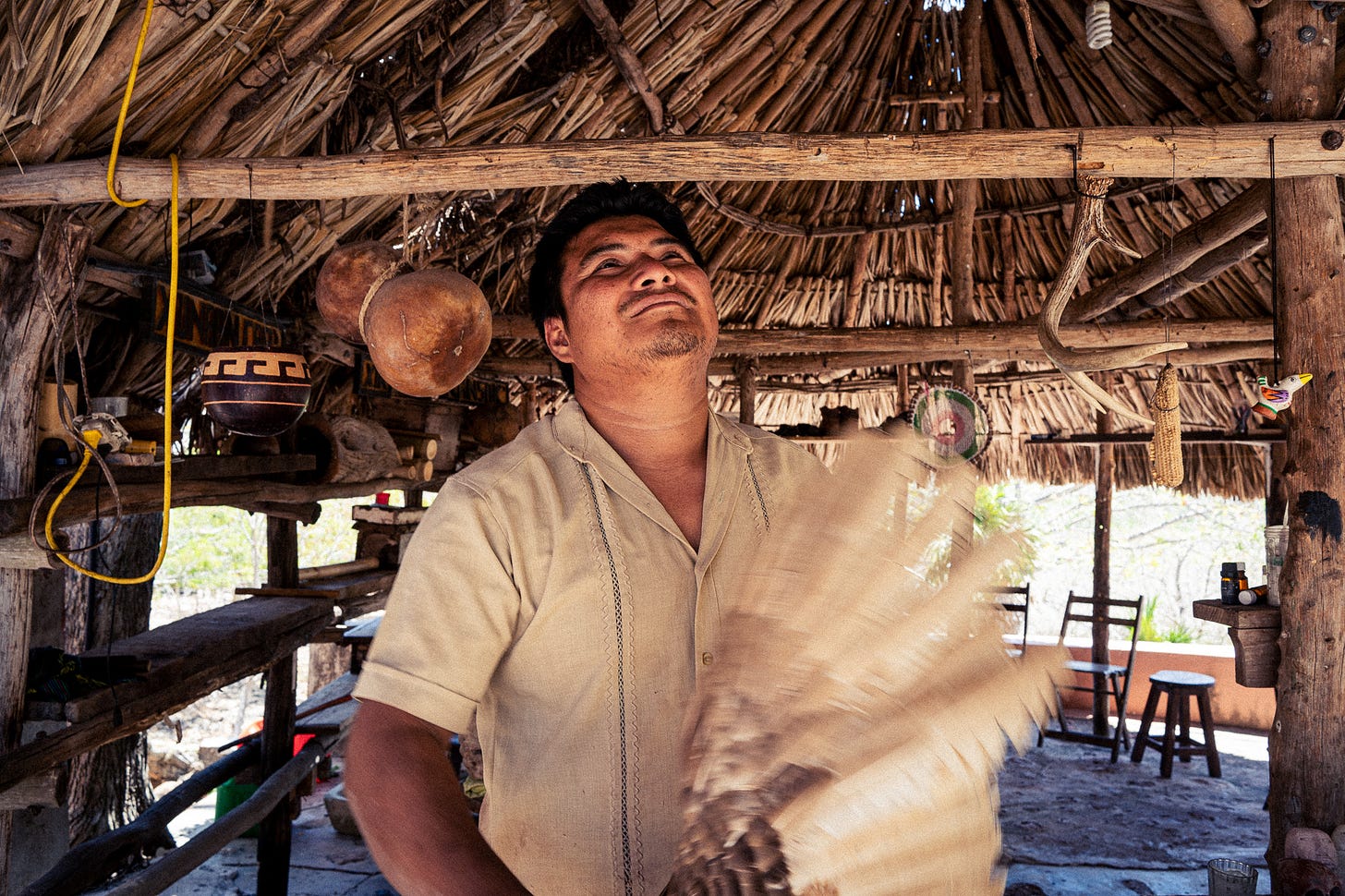We must acknowledge the wounds of colonization to understand lack and abundance
What my Maya baptism taught me about frequency, vibration, and the way colonialism shapes my own moral frameworks.
While Chichen Itzá impressed with scale, Uxmal took my breath away. The pyramid is smaller, the ball court less imposing—but the detail in the stonework, the layout of the plazas, the rhythm of the architecture—all of it made it easier to imagine how life once flowed through this city. Uxmal flourished during the Late Classic period, and by the time the…



